How ERP Works In An Organization-A Step-by-Step Guide
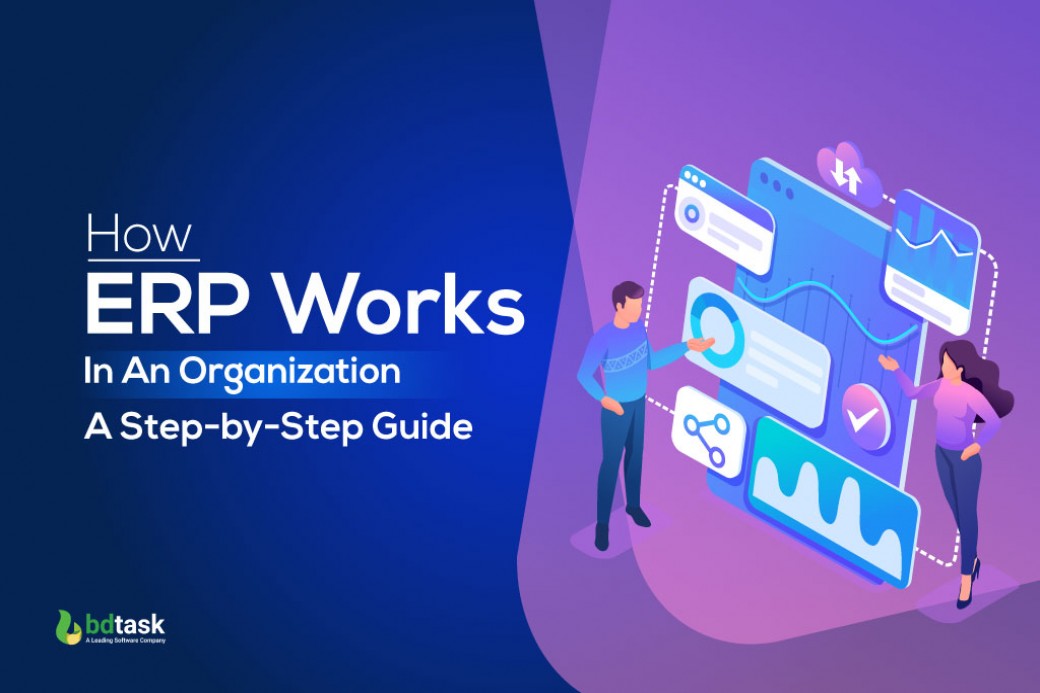
If you're considering adopting an ERP system, one of your first questions is How ERP Works in An Organization? Two of the essential keys to business success are efficiency and profitability. The business owner can streamline almost all back-office tasks with an effective ERP platform.
Not only that
When you use an ERP system in your organization, but It is also easy to share the data from several departments and visualize it across the company. As you can see, ERP platforms provide a wealth of information that helps grow various business goals and reduces the total amount of time so your employees can fine-tune their overall skills.
Most business professionals have heard the term ERP, but they need to learn about How ERP Works In An Organization or what it can do ERP for an organization, and its benefits, so let's dig it out.
So, with all these considerations in mind, let's look at how ERP works at any company profit accelerator.
What is ERP, And How Does It Work?
E=Enterprice
R=Resource
P=Planning
ERP is the ultimate solution to reduce manual labor and simplify existing business workflows.
ERP is an excellent management software that can assist you in running your business efficiently by automating all your everyday tasks.
All your business tasks related like-
- Sales
- Human resources
- Inventory management
- Customer relationship management
- Finances, etc.
All of these mentioned above are available in one place. ERP software represents you with a bigger and sounder picture, with real-time updates, for easy monitoring of your business and your organization's growth.
ERP can integrate with other solutions to hold or gather data in one centralized location.
Without ERP, the data is completely siloed.
By now, you must be interested to know how ERP works in an organization. The ERP system supports you in increasing your business's efficiency, which in turn, improves profitability. The ERP system is a business procedure managing software that lets you organize data through ERP system software.
ERP system enhances your company's operations in every department by providing you with complete control of your business's resources. Instead of going back and along between different departments from one app to another, you can handle everything in one place through ERP system software. However, to earn this level of efficiency for your company, you must invest in a sound, well-reputed ERP system.
The perfect example of an ERP system could be a retail company.
- The sales team gathers the customer orders into the ERP system, automatically checking inventory levels and availability.
- If a product is out of stock, the ERP generates a purchase order for the supplier.
- The finance module processes payments and manages accounts payable/receivable.
- The ERP also tracks shipments, updating the customer and the warehouse team.
The ERP system delivers real-time data and reports to allow management to make informed decisions, such as adjusting product pricing or modifying the supply chain. Gather all business processes.
Types Of ERP Systems
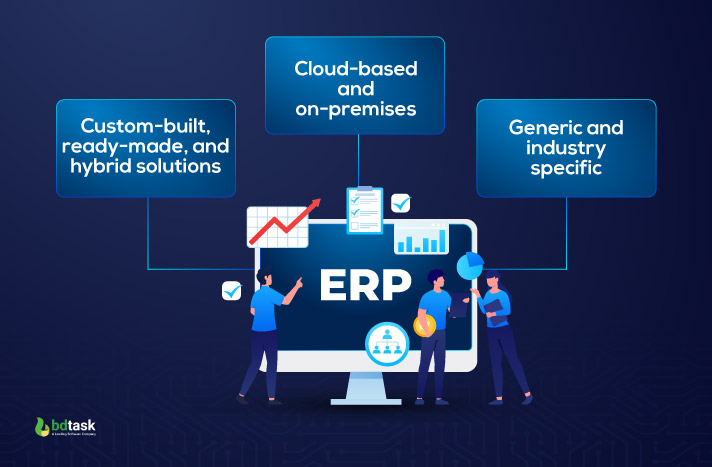
The global ERP software market was valued at USD 51.05 billion in 2021. not only that, It is expected to achieve a worth of USD 95.13 billion by 2028, at a CAGR of 9.3% over the forecast period (2022 - 2028). Imagine you give the full potential for your organization and invest everything you have. Install ERP software, but the output could be better than you expected. What is the reason behind it? First, you need to know how ERP works in an organization. The mean thing is that if anyone wants to survive and increase their productivity in their organization, they must follow three initial steps.
- Know everything about that software
- What are the types
- Company Size wise select software
So now We know the working product, which is ERP. How its works, we know that as well. Now it's time to learn the type of ERP system because it's mandatory for anyone using ERP for their business.
ERP types can be declared according to various characteristics.
- Cloud-based and on-premises
- Generic and industry-specific
- Custom-built, ready-made, or hybrid solutions
#1 Cloud-Based And On-Premises ERP
Cloud-based-this system is hosted on a vendor's servers and can be accessed over the internet.
Advantages
- Secure the data
- No need for an IT specialist to maintain the software
Examples:- Oracle Netsuite, Microsoft Azure, Infor CloudSuite
The user of cloud-based ERP - Small and mid-size companies are using it.
- On-premises ERPs
On-premise ERP software is installed on an institution's computers and servers. In detail, The ERP software installed on the computers and servers owned by an organization is known as on-premises ERP software.
Advantages:
- Companies have complete access and ownership.
- Zero reliance on external servers for connectivity.
- Easy customization.
Examples-SAP ERP, Sales ERP Software, Microsoft Dynamics GP
The user of On-premises ERPs-
#2 Generic And Industry-Specific ERP
Generic enterprise resource planning software delivers various functionality for organizations across multiple industries.
Advantages:
- Minimal adjustment.
- Chemical and process manufacturers are the real benefiter.
The user of generic enterprise-
It's a suitable option for someone who doesn't operate in a particular niche market and is looking to implement ERP software promptly while watching their budget.
Examples -Epicor ERP, Infor ERP, and SAP Business One.
i) Industry-specific ERP-It is designed for niche industries. An industry-specific ERP solution, or niche ERP solution, allows companies to automate their accounting, finance, and business management functions, etc.
Advantages:
- Access to Industry Best Practices
- Stronger customer focus
Examples- Acumatica, Epicor Kinetic.
ii) The user of Industry-specific ERP-
Industry-specific solutions may not be the proper remedy for someone who is looking to save money and is willing to settle for the basic functionalities of a generic ERP system.
#3 Custom-built, ready-made, or hybrid solutions
i) Custom-built ERP software
Your chosen ERP development company makes custom ERP software according to your precise requirements and to suit your business processes.
Advantages:-
- Enhanced scalability
- Seamless integration
For example and the user: if you want fully custom-based ERP software, you need the best custom software development company. Bdtask is the best custom software development service company to develop your ERP software as your requirement.
ii) Ready-made or off-the-self ERP software -
This ERP software is already a ready-made product. Suppose you're a small service business such as a cleaning company, taxi, delivery company, local shop, or cafe. You can benefit from an off-the-shelf solution since your structure, and business processes are typical.
Advantages-
- Good choice for a certain company
- Fast to deploy
Examples of off-the-shelf ERP software are Oracle EBS and SAP Business One.
iii) Hybrid ERP solution
Hybrid is one when you have an existing ERP software, but in the meantime, you must add some features to improve it. Then it will be called hybrid ERP.
Advantages-
- specific business functions
- Reduce cost
Who is the user?
Mid-size business owners and large companies used it more than other owners.
How Long Does ERP Take to Work
An ERP system with 360° visibility into operations
There are two common questions for ERP implementation
1. How much will it cost?
2. How long will it take?
There is no exact number for ERP implementation or but it takes more or less time depending on some factors like
- Company size
- The company operates in how many countries
- Total employee
- The business process of that company
- Industry to choose
- The complexity of the system being installed.
3 Simple Effective Steps Implementing Your ERP Quickly
1. Your strategy:-
- Set business growth goals
- Break the project into pieces
- Don't rush implementation
2. People
- Pull a core team together
- project champion in each team
3. Your process
The new beginning year is the perfect time for ERP implementation. After this process is complete, come to the main point, which is six months to 12 months to implement it. If you need a helpful guide, then ERP implementation life cycles are the best option.
Why ERP Systems Important for An Organization
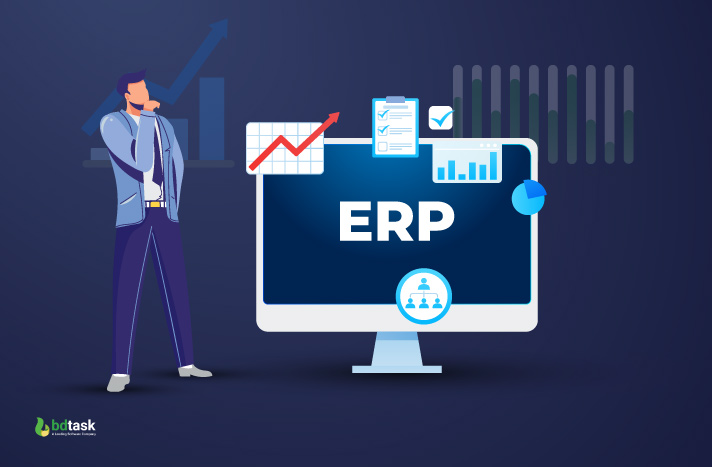
ERP system is integral to any small, big, or large organization.
- ERP helps an organization identify opportunities for improvement and development.
- The more employees have access, the more likely problems will be spotted and proactively managed.
- Executives use the information to complete outcomes such as efficiency, cost reduction, and market responsiveness.
- ERP automates error-prone tasks and provides information for efficient operations.
- ERP provides a complete view of the organization and detailed insights into specific processes and KPIs by identifying patterns and flagging anomalies.
Besides all those things, an organization gets many more benefits than they can't imagine. So it's time to find out the real and actual benefits of using an ERP system and how ERP works in an organization.
9 Benefits Of Using ERP In An Organization
If you're thinking of installing an ERP system, upgrading a current system, or wondering if you need one, it's worthwhile to understand the benefits an ERP system can bring to your business.
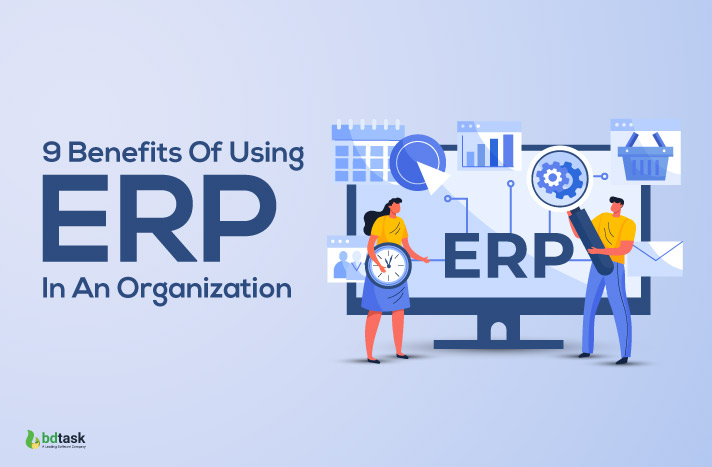
1. Data Security
The heart of any ERP system is data security. Data security is the most crucial sector if you are an owner of a big, small, or medium organization. You have yet to learn an ERP system is a game changer for your whole organization.
Data has become a prized possession for the organization because it's essential to making the best possible decisions, and ERP software can help protect that asset. The fact that all this data is in one place rather than spread across multiple systems with unsafe levels of security increases the level of protection.
It replaces spreadsheets and other documents sitting on employees' desktops and being passed around via email. In another sense, an ERP system can increase data security by limiting who can view and edit data.
Most plans have easy-to-control permissions, providing employees with only see the information they need and reducing opportunities for fraud or other nefarious activities.
2. Improve Accuracy and Productivity
To enhance your business productivity & growth, you must understand your core business processes and required functionality. So, ERP installment is the best practice to understand your core business.
An ERP system that takes your accuracy and productivity to the next level.
With an ERP system, you can collect all your data and update all the records per your requirements. Customize your data format as you want, so it's now easy for any company or organization to work fast.ERP system's primary advantage is that it will help reduce manual paperwork. without an ERP system, any company may be lost its inventory accuracy, and that will lead to
- Low service levels
- Increased operating costs
- Poor customer service
- Extra storage costs
You are investing in an ERP system that can help you execute all your organizational tasks with just a few mouse clicks. If processes and procedures are in place, inventory can be maintained effectively and precisely.
3. Save Money and Save the Organization
How can an ERP solution save money? and how ERP works in an organization to save billions of dollars? One of the most significant advantages of having an ERP in your organization is that it can save money in several ways. By automating many simple, duplicative tasks, you minimize errors and the necessity to add employees at the same rate as business growth. Let's look at which section you can benefit from installing an ERP system.
Complete control of inventory:-
Inventory handling costs like shipping, receiving, and related accounting tasks are practical terms to handle manually. ERP helps you automate many of these processes. And up-to-date reporting and predictive forecasting—along with more competent production management—allow you to keep inventory carrying costs to a minimum.
Information flows smoothly:-
The centralized results of ERP and its rich data-gathering capabilities result in a smoother and faster flow of information across the organization. So it will lead to saving time as well as saving money.
Supply chain management:-
ERP enables you to coordinate purchasing and supply chain, monitoring dependencies and keeping everyone concerned informed about the latest production statuses.
Timely Invoicing:-
Speed up your cash cycle more than ever through ERP software solutions.
All of these depend, of course how you implement them.
4. Scalability
To ensure your business's ongoing success, you must keep an eye on the future. Companies often need to plan appropriately and experience growing pains that pose severe roadblocks to whatever progress they enjoy.
A system that can elegantly and efficiently adjust your company's growth is the utmost priority, and the right ERP system makes it easy.
The system can scale with your business as it grows and evolves. You can also add new users as your teams increase. There's no need to get a new ERP solution just because your business has changed.
5. Maintain Customer Relationship
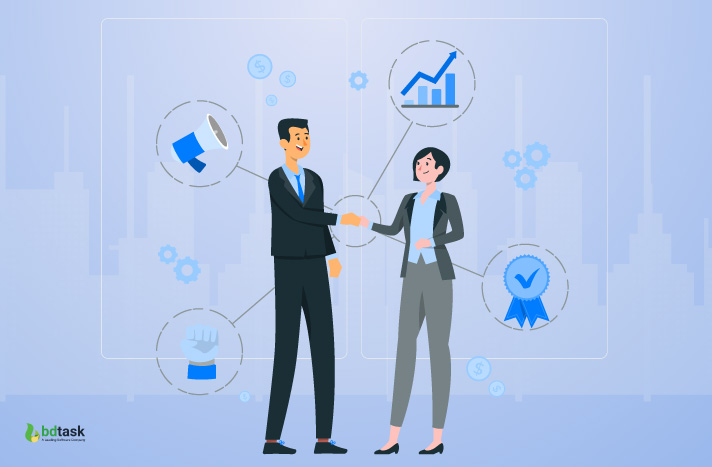
Customer satisfaction and maintaining all the sales and inventory is an excellent task for any organization. Managing your customer relationships in an ERP solution does not have to be a challenge any longer.ERP systems will let you catch and bring together all the details about your customers and market trends.
Let's focus on the three phases of the customer lifecycle and how ERP works in an organization and for customers.
Step 1 -Gaining new customers
The ERP solution can be an ideal tool for information for leads, quotes, sales activities, opportunities, and contacts to gain new customers in any organization. With an ERP tool, you can customize your lead and edit it as you want.
Step 2:-A proper tool
Once you have a new customer, your ERP solution can manage
- Quotes,
- Sales orders
- Shipments,
- Invoicing,
And collection activities and is ideal for having a "customer workbench." Sales activities can be managed, as can any customer services items like questions, returns, repairs, or installations.
Step 3:-keep customers happy
ERP helps improve customer service by
- Streamlining backend processes
- Matching supply with demand
- Improving user quality
- Access to the information you need to serve your customers better.
When backend business processes are modernized and streamlined, customers reap the reward. An organization with modern ERP can improve customer service and provide better service because they have a 360 view of the customer, including all customer history.
This information allows the business to prioritize the best customers and maintain a better relationship with customers.
6. Customization On Your Need
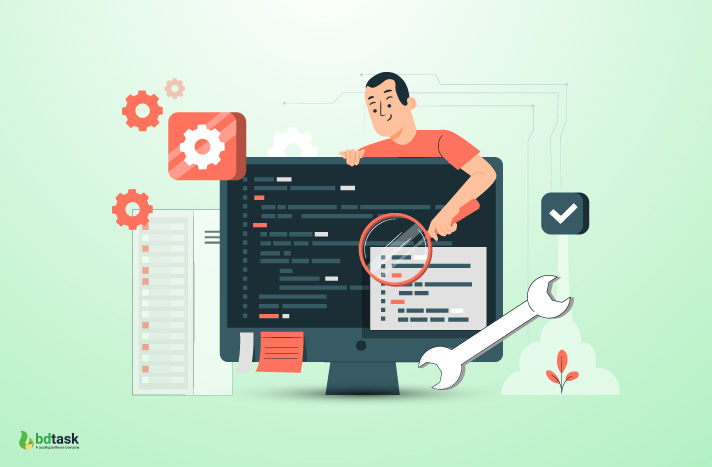
ERP software systems can easily be customized per the company's requirements irrespective of the operating systems and database systems used.ERP solutions are not only made up for large organizations; it is now suitable for small and medium businesses.
7. Standard ERP Report
If your organization wants to communicate to the market, you will need everyone to read from the same book. ERP software solution will ensure that the information delivered by your organization is readable.ERP will help you get precisely what kind of report you want and what a client wishes.
8. Mobile Friendly
The user and employee feel comfortable using the mobile phone instead of the computer to complete many quick tasks. Sometimes they need to be in front of pc, so they use their phone to complete sudden tasks. Sometimes an employee can also take care of critical tasks like approvals and monitoring cash flow (AR and AP) when they have a mobile-friendly ERP solution.
9. Intregated with your current system
ERP integration allows you to combine your current system with the new one. You are doing this integration without any hassle. It needs to integrate with several business systems so that it can enhance the overall accuracy of operations. Integrated with ERP helps any organization to eliminate time-consuming parts of the work.
Choose The Right ERP for The Organization
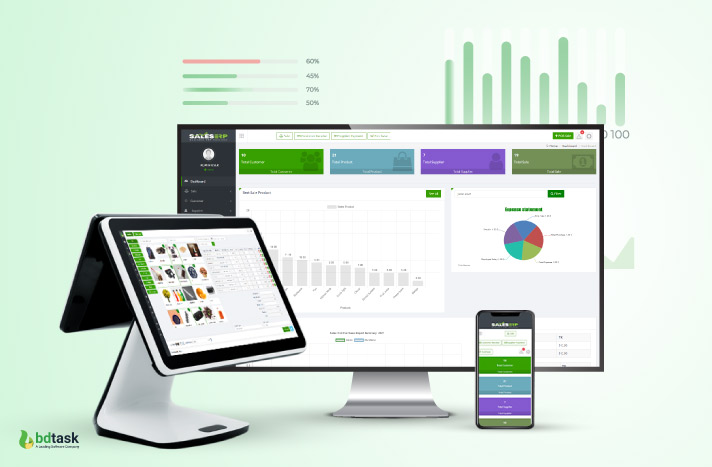
Now that you know how ERP works in an organization and the importance of installing an ERP system, move to the last and most crucial stage of having an ERP system and choosing the right one for your business or the organization.
Choosing an ERP system is no small matter.
A wrong decision can make a significant harmful impact on your organization as well as your business.
Multiple ERP system software is available, but you must pick the one for your industry type. For example, the ERP system software needed for running a school would be different from the ERP system required for the apparel industry. If you want to choose the best out of the best ERP software, then you have to remember some critical factors.
- Current State Of Your Organization
- Implications of ERP/ open source/ feature
- the total cost of an ERP and your budget
- Desire scalability
- Make a decision
Last but not least
Suppose you're looking for a unique custom or ready-made solution that can cover your organization's concerns and provide an excellent base for future growth. In that case, Sales ERP Software is the best for any organization. Sales ERP software is a complete package and full of top-notch features. You can edit it to your requirement, and it's also budget-friendly software.
Outcome
ERP software saves you a lot of time and headaches. You'll better grasp how your company performs because this software combines several processes into one system. After all, you don't have to gather reports from each operation separately. Without an ERP, companies tend to operate in silos, with each department using its disconnected system. Also, remember that the ERP system should integrate with your in-house software systems so your organization can work seamlessly.










